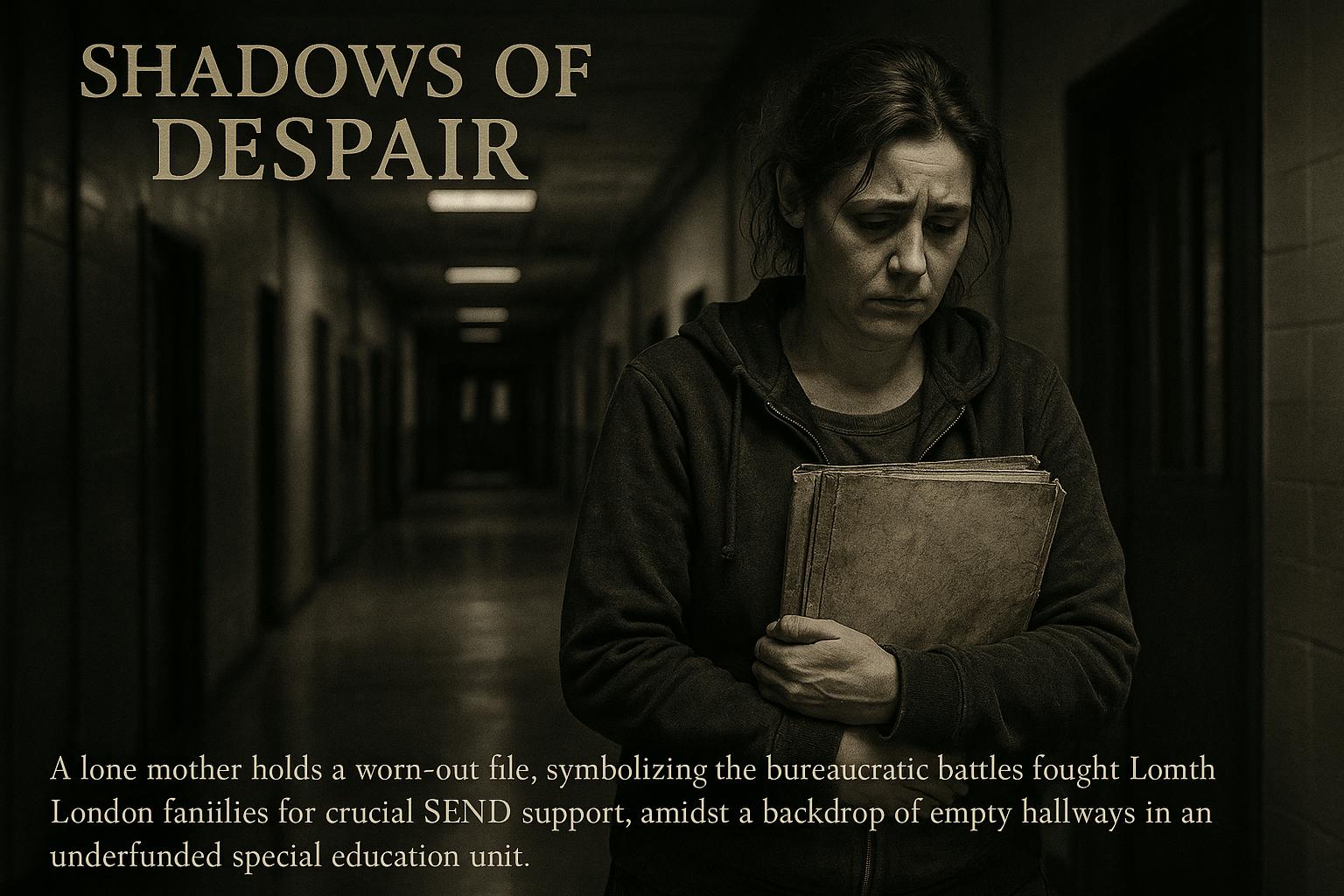Families of children with special educational needs and disabilities (SEND) in South London have voiced profound frustration and distress over the failings of the education system, which they say is leaving vulnerable children without appropriate support or schooling. In Kingston and Richmond, parents have told how their children have missed months or even years of education due to a chronic shortage of specialist places and support services. A protest organised by SEND Sanctuary UK saw pairs of children's shoes lined up outside council headquarters, symbolising thousands of children unable to access the education they desperately need.
Parents described battling tirelessly with Achieving for Children (AfC), the joint service provider responsible for SEND in Kingston and Richmond, highlighting significant delays and a lack of suitable provisions. Many children reportedly remain on part-time timetables or are excluded from school altogether while awaiting assessments or placements. Georgie Cook, a mother from Kingston, shared her ordeal of her 12-year-old daughter being out of school for over a year as she awaits a specialist placement, which may take another 18 months to two years to secure. The number of children with Education, Health and Care Plans (EHCPs) in these boroughs has surged by nearly 50% since 2019 to over 4,000, exacerbating existing pressures on the system.
The impact on children's mental health has been particularly severe, with many experiencing anxiety, depression, and self-harm. Parents cite long waiting lists for Child and Adolescent Mental Health Services (CAMHS) as compounding the crisis. Messages attached to the shoes at the protest poignantly conveyed the desperation felt by families, including a 14-year-old boy who has been unable to attend school for four years, suffering from trauma and distrust as a result of systemic neglect.
The crisis in Kingston and Richmond reflects a wider national issue. Just last month, parents of SEND children staged protests across England in cities including Norwich, Birmingham, and Liverpool, voicing a loss of faith in the government's commitment to properly support these families. Research uncovered that many SEND children across the country are being denied appropriate school places and often face forced home schooling due to inadequate local provision.
Local authorities acknowledge the challenges and say they are working through partnership boards and SEND Futures Plans to increase inclusion and timely support. Richmond's SEND Futures Plan explicitly recognises frustration within the system and commits to improving outcomes by engaging closely with families and enhancing local services. However, councillors concede that national funding models remain inadequate to meet increasing demand. Kingston and Richmond councils anticipate their capacity efforts to be bolstered only once the government’s long-awaited SEND reforms, now expected around 2026, come into effect.
Parent groups underline the shortage of specialist capacity in the area, with around 10% of children needing to travel outside their boroughs for appropriate education—double the national average. This situation places additional financial and emotional burdens on families as out-of-borough placements often come with significant extra costs and challenges around accessing support services.
The Department for Education (DfE) has described the SEND system inherited by the current government as being "on its knees" and affirms its commitment to reform. Officials highlight ongoing engagement with families through listening sessions and initiatives such as increased funding to create specialist places, enhanced teacher training, and early intervention programmes to improve outcomes. Despite these assurances, the lived experiences of parents on the ground continue to reflect a pressing need for more immediate and tangible progress.
The education appeals process remains a vital but complex recourse for parents in Richmond, with the local authority providing guidance yet highlighting the difficulties faced by many families navigating the system. Meanwhile, local safeguarding bodies stress the importance of early intervention to prevent escalation of needs and ensure children receive timely support across education and health services.
In this climate of systemic strain, parents like Georgie Cook call for their voices to be truly heard by policymakers. "We are forced to fight and speak up and advocate all we want is for our kids to be heard and to be counted," she said. SEND Sanctuary’s founder, Aimee Bradley, echoed these sentiments, warning that "No child should be left behind because the system decided their needs were too complex or too inconvenient." She urged government action, stating, "Our children deserve more than words. They deserve real change, and they deserve it now."
📌 Reference Map:
- [1] MyLondon - Paragraphs 1, 2, 3, 4, 5, 6, 7, 8, 9, 10
- [2] ITV News Anglia - Paragraph 3
- [3] Richmond Council SEND Futures Plan - Paragraph 6
- [4] Kingston Parent Carer Forum - Paragraph 7
- [5] Richmond Council Admissions Appeals - Paragraph 8
- [6] Kingston and Richmond Safeguarding Children Partnership Early Help Strategy - Paragraph 9
Source: Noah Wire Services
